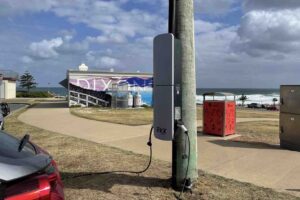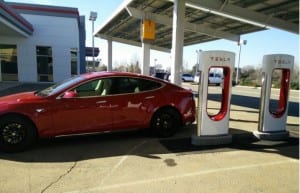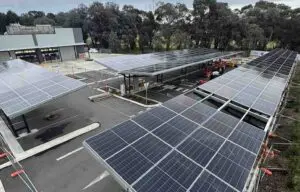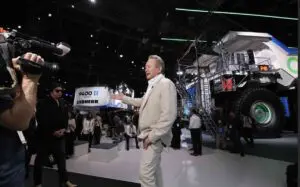 Toyota will begin mass production of electric vehicles by 2020, in time for the 2020 Tokyo Olympics, according to a report from the Nikkei Asian Review. Notably, Toyota will be a major sponsor of the 2020 Summer Olympics. While the source isn’t named, the timeline would match up pretty well with recent company statements about having “tamed” lithium-ion battery technology.
Toyota will begin mass production of electric vehicles by 2020, in time for the 2020 Tokyo Olympics, according to a report from the Nikkei Asian Review. Notably, Toyota will be a major sponsor of the 2020 Summer Olympics. While the source isn’t named, the timeline would match up pretty well with recent company statements about having “tamed” lithium-ion battery technology.
The report claims that an in-house development team will be created for the transition to electric vehicles (EVs) as soon as early 2017. In order to transition (begin production) rapidly, Toyota will reportedly be seeking “cooperation from group companies.”
The plan is apparently to develop an EV with a single-charge range of more than 300 kilometers — this figure may be with regard countries with a relatively lax testing/rating body, but there’s no way to know at this point. If sales are going to be strong, and prices aren’t going to be rock bottom, then the company will probably need to offer more of a range than that figure implies. One would think so anyways.
Understandably, the company is reportedly considering electric versions of the Prius and/or Corolla, and/or an SUV.
Here’s more from the Nikkei Asian Review:
“The automaker will bolster development of batteries, a core component that determines the vehicle’s performance, through the company’s battery material research department established in January. But Toyota also may procure batteries from outside sources to keep costs low for EVs while offering good performance, including driving range, and charging time. …
“Toyota’s shift also responds to moves by rivals. Volkswagen has announced a plan to have EVs account for almost 25% of sales by 2025, up from 1% now, after an emissions-cheating scandal in the US came to light last year for diesel cars, the core of the German company’s green-vehicle strategy. China’s leading EV manufacturer, BYD, is boosting production. And Tesla enjoys strong demand for its EVs, including a small sedan due out next year.”
These statements haven’t been corroborated by Toyota yet, and those who have requested a comment on the matter were given generic responses about pursuing all promising technologies, but they do match with the recent news about a direction shift. If Toyota wants to maintain its current market share, then it will have to shift at some point in the approaching future. 2020 sounds about right, even if the date has yet to be confirmed.
Source: CleanTechnica. Reproduced with permission.










